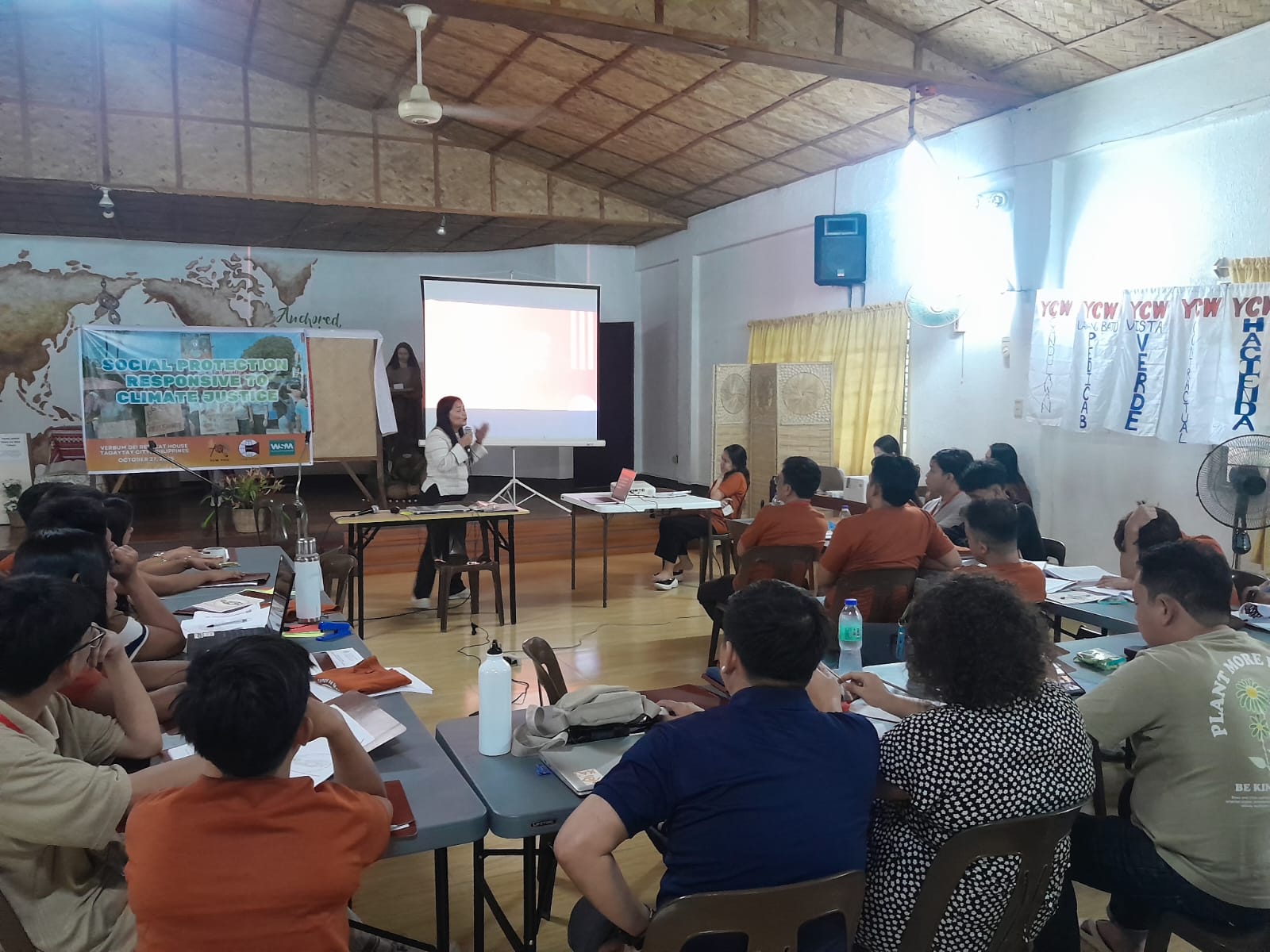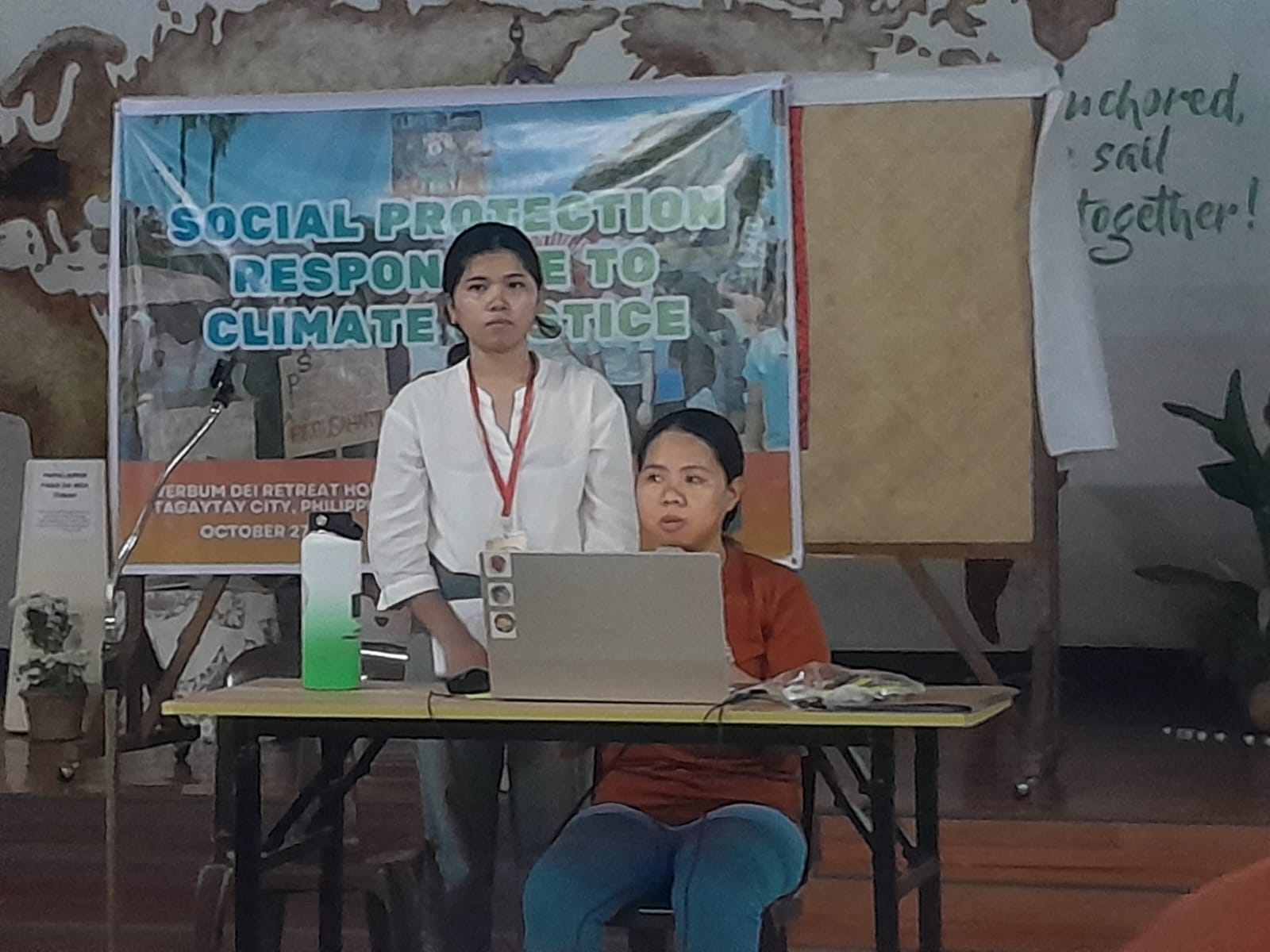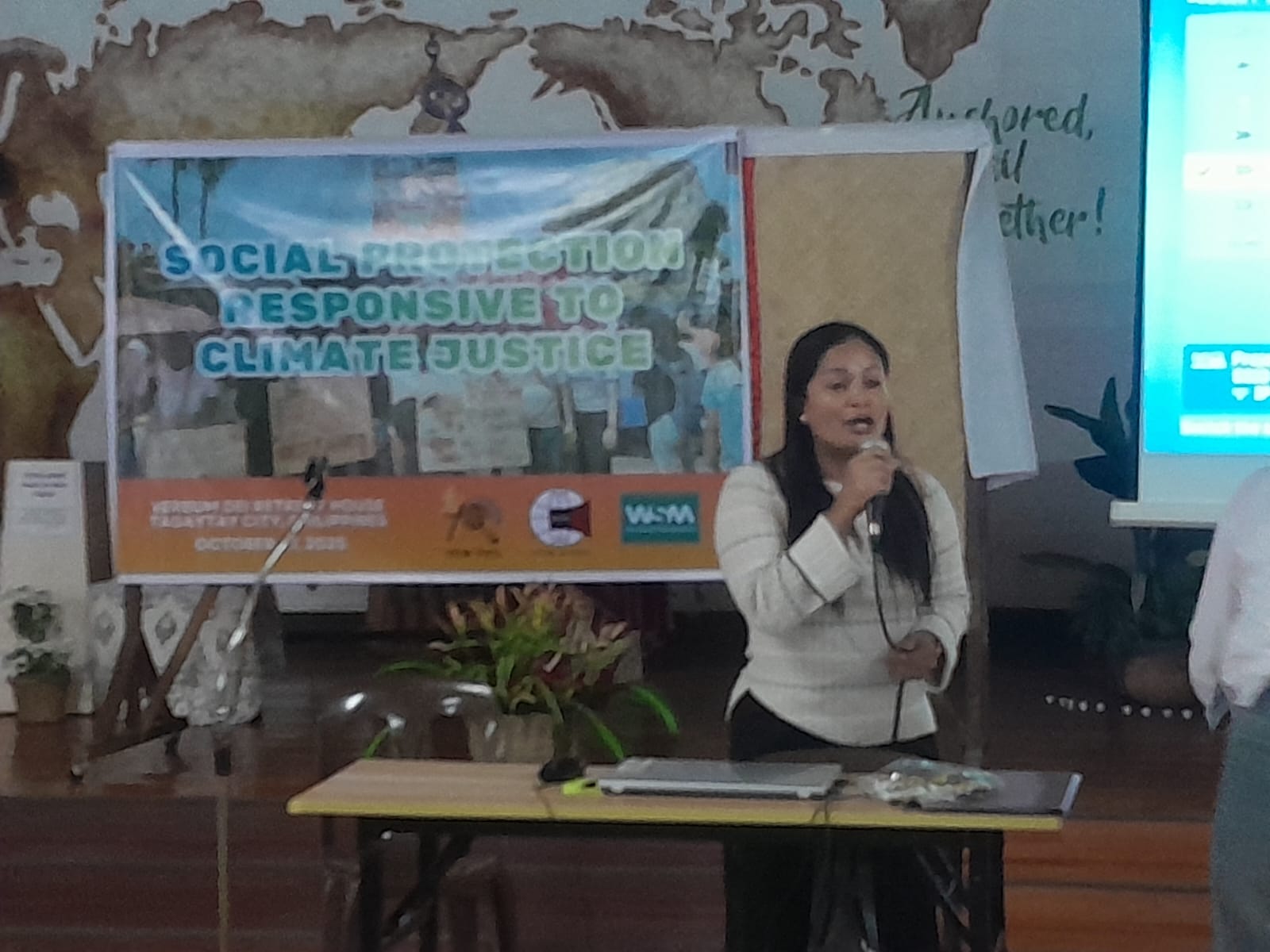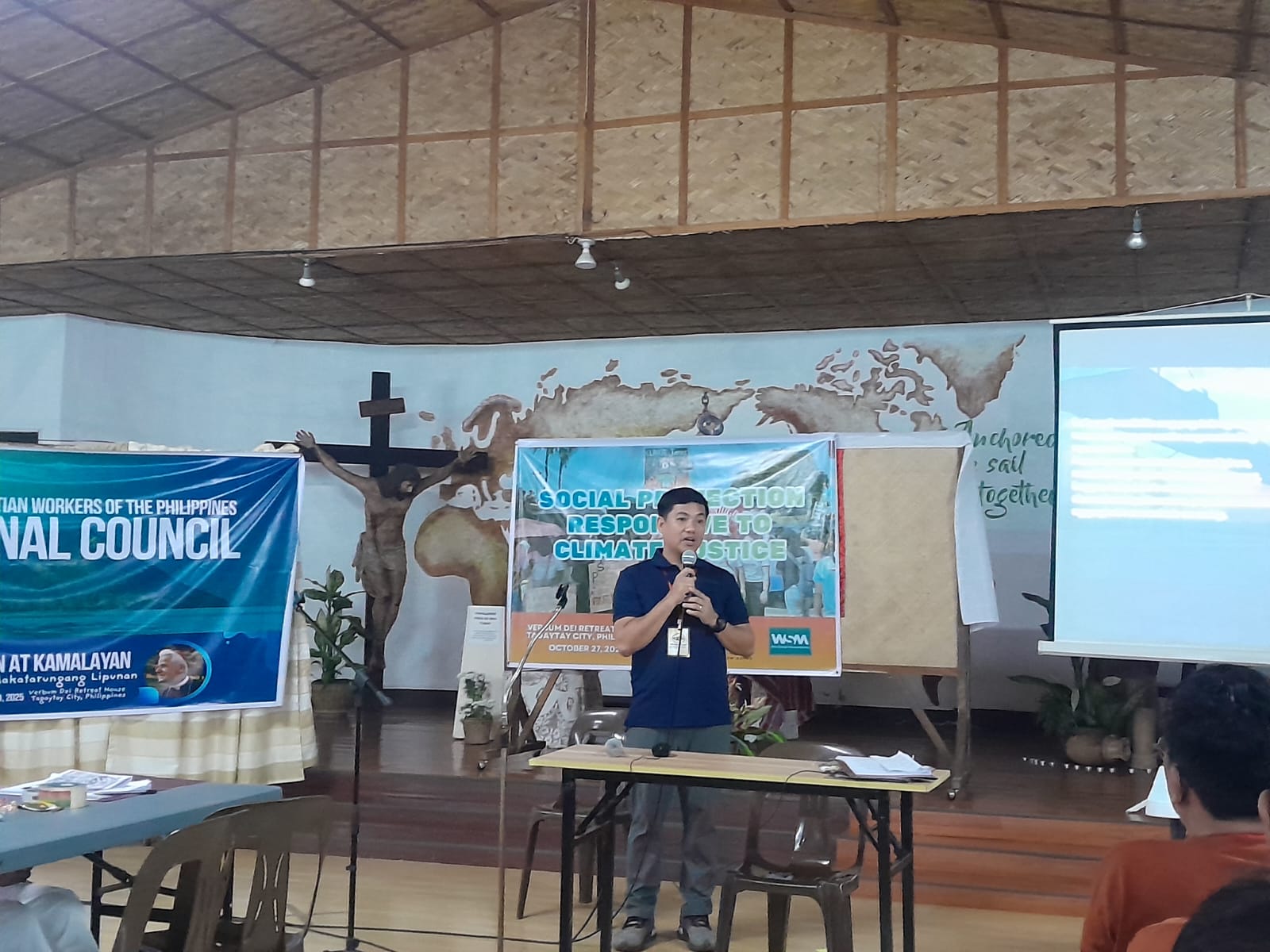![$rows[judul]](http://iycw-aspac.org/asset/foto_berita/WhatsApp_Image_2025-11-06_at_12_10_34_801fbc58.jpg)
The Young Christian Workers of the Philippines
(YCW-Phil) continues to raise the voice of young workers for justice and
dignity. On its latest initiative, YCW-Phil organized a forum on “Social
Protection Responsive to Climate Change,” bringing together 25 participants
from different base groups across the country.
The activity was part of a synergy program
between YCW Philippines, the Alliance of Health Workers (AHW), and IYCW-ASPAC,
with support from the World Solidarity Movement (WSM). The forum became a space
to connect two urgent struggles — the fight for social protection and the fight
for climate justice — highlighting that a just society is also a livable planet
for all.
Understanding the Climate Crisis and Its Impact
on the Working Class
John Brian Geronimo, the ASPAC Coordinator of
the International Young Christian Workers, opened the discussion by unpacking
the roots and consequences of climate change. He emphasized that climate change
is not merely a natural phenomenon, but a result of an exploitative economic
system driven by profit and greed.
Factories emitting toxic gases, large-scale
mining, deforestation, and fossil-fuel dependence are not isolated acts — they
are the manifestations of a development model that prioritizes corporations
over people and the planet. And it is always the poor and working people who
suffer most — losing homes to typhoons, jobs to disasters, and health to
pollution.
Brian also explained the current social
protection system in the Philippines, which includes programs such as
PhilHealth, SSS, GSIS, Pag-IBIG, and conditional cash transfers. However, he
pointed out that these programs fail to reach millions of informal and
precarious workers, especially those without regular contracts or stable
income.
He stressed that true social protection must go beyond short-term relief — it must
guarantee livelihood security, healthcare access, safe working conditions, and
resilience against climate-related disasters.
“IYCW-ASPAC believes that real social
protection is not charity but a right,” Brian emphasized. “It must be
universal, participatory, and responsive to the challenges of climate change.”

Health Workers in Crisis: Voices from the
Frontline
Lovely, a representative from the Alliance of
Health Workers (AHW), gave a powerful input on the worsening condition of the
country’s health sector. She shared that many doctors, nurses, and hospital
staff continue to receive low wages, forcing thousands to seek work abroad just
to support their families.
She also raised the lack of hospital bed
capacity, shortage of medical staff, and budget cuts that weaken public health
services. Meanwhile, the privatization of hospitals makes healthcare even more
inaccessible for ordinary Filipinos.
“The health sector mirrors the situation of
young workers,” Lovely said. “We face job insecurity, low pay, and lack of
protection — while those in power continue to profit from privatization and
corruption.”
Corruption, Inequality, and the Common Struggle
Participants agreed that the struggles of
health workers and young workers are deeply connected. Corruption in government
— from the misuse of funds to the neglect of public services — robs both
workers and the people of their right to life, dignity, and security.
When government resources meant for health,
education, and climate programs are pocketed by the few, it is the working
class who pay the price: low wages, joblessness, unsafe workplaces, and a
damaged environment.
Towards a Just and Sustainable Future
The forum reminded everyone that the struggle
for social protection is not separate from the struggle for climate justice.
The two are one and the same fight — for life, dignity, and a future worth
living.
As the Young Christian Workers declare: “To protect the people is to protect the planet. Our fight for justice is our fight for survival. Together, we will build a society where work, life, and nature exist in harmony.”
OUR CALL: Commitment to push for a people-centered,
climate-responsive social protection system — one that ensures:



Write comment